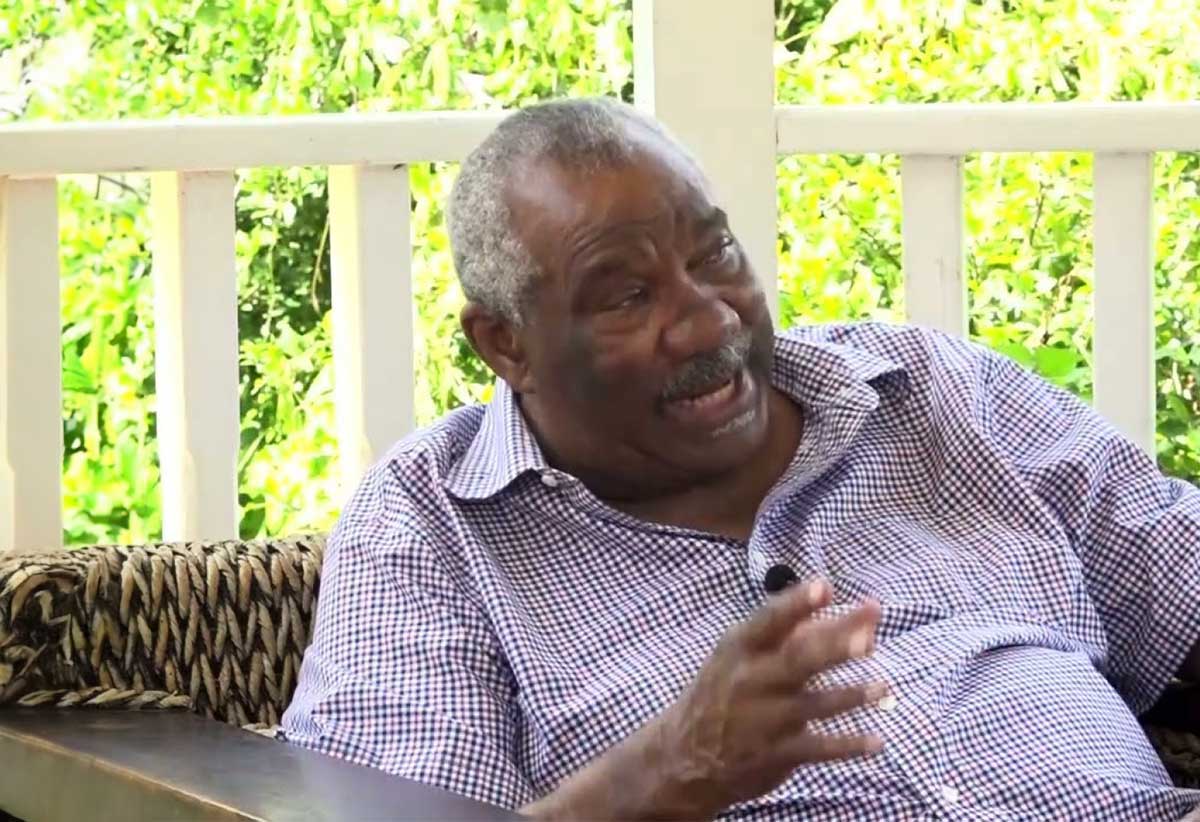
Last weekend’s launch of a book of ‘Stories of the Roseau Valley’ at the Saint Lucia Distillers compound provided yet-another powerful reminder that unless Caribbean people write our own stories, they’ll be written by others – for us.
The Roseau and Cul de Sac Valleys are rich agricultural area that historically produced canes for sugar, bananas for export to Britain – and now, rums for/to the world.
But Cul de Sac lost its banana base to industry and only Roseau and the Dennery Valleys remained as the main producers for Geest Industries, the UK-based company that dominated the industry in the four Windward Islands.
‘Jan Wozo’ (‘Roseau People’) were largely, until lately, regarded as less-civilized and cold-shouldered by no-better-off urban dwellers and the book is what the authors describe as “true life stories through oral history of the educational, social, health, religious, economic and agricultural life of the people of the Roseau Valley.”
The launch involved introduction of the eight authors of the 185-page collective autobiography — Stanislaus Albert, Margaret Lubin-Akoi, Brian Auguste, Primus Hutchinson, Francis Leonce, Patrish Lionel, Canisia Lubrin and Fr Lambert St. Rose – all showered with deserving praise.
Minister in the Ministry of Finance and MP for Anse-La-Raye/Canaries, Wayne Girard, also delivered remarks, welcoming the “collection of tales of the tapestry of life in Roseau, born of a desire to capture our valley’s history.”
He saw it as “a rich documentation of our mosaic” and encouraged fellow Roseau citizens everywhere – and Saint Lucians generally – to “share these stories with your children…”
Saint Lucia Distillers Managing Director Margaret Monplaisir welcomed guests to the compound of what used to be a ‘The Factory’ or ‘The Company’ – headquarters of the main employer in the plantation fields that surrounded the sugar refinery.
She also encouraged persons everywhere to “purchase a copy” to “not only support the authors and their work, but also helping preserve the rich history of the Roseau Valley for future generations.”
The MD thanked the authors for their “dedication” and urged other communities to “follow Roseau’s example” and “continue to celebrate and document the stories of our community, ensuring they are not lost to Time, but are instead passed-down as a cherished legacy.”
Acting Executive Director of the Monsignor Patrick Anthony Folk Research Center (FRC), Melchoir Henry (who earlier in life gathered banana production data from The Valleys for Geest) recalled the phenomenal level of productivity of Roseau’s Model Farms project back then, “when Roseau alone produced in one fortnight, what Grenada produced in one year…”
Johanan Dujon, the young local entrepreneur behind Algas – the local company providing innovative, healthy and working solutions to the region’s stinking seaweed problem – and whose late mother Irene was a popular school principal ‘from Roseau’, encouraged other Roseau youth to follow his lead and find their footsteps into a world waiting to be explored.
Remarks were also delivered by sponsors, tributes recalled contributors who passed-away before the launch and two video messages came from Roseau residents abroad -Dr Fiona Mayer in the British Virgin Islands (BVI) and Mrs Margaret Lubrin-Aoki in Japan.
Joanne Cooper delivered a tribute to Dr Edsel Edmunds – a former Director of the Winban Research Center in Roseau, who passed away earlier this month in the USA.
Special remarks were delivered by veteran agriculturist, historian and author, former Senate President and Cabinet Minister, Sir Calixte George.
Sir Calixte, who wrote the new book’s Foreword, noted the launch coincided with observance of Emancipation Month here and said: “If I was the Prime Minister, I would invest Saint Lucia’s Food Security in Roseau and revive the agricultural research station.”
He also called on the Government to “consider erection of an agro-industrial complex in Roseau, to use our fruits properly, to make special products – even in categories of Gold and Silver for Fruits and Juices” to honour Saint Lucia’s two Olympic Medals won in Paris days earlier by Julien Alfred.
A former Executive Director of the Caribbean Agricultural Research and Development Institute (CARDI), Sir Calixte said that book was “a wonderful story to dictate”, but suggested that, as a first effort, it’s breadth should be expanded and enhanced with later editions.
He also noted absence of coverage of the rich heritage of descendants of Indian indentured labourers in the Valley (like the Adjodha and Kodobacchus families) whose ancestors arrived through Indentureship after Slavery was abolished.
Sir Calixte also recalled the late Chief Agricultural Officer Cyril Matthew, from neighbouring Millet, who was engaged in agricultural science research in Roseau and taught the subject at their Alma Mater, St. Mary’s College (SMC).
Others he recalled included the late Stephen Hippolyte and Stanislaus Matthew (father of legendary retired police inspector Gerald Cyril) who were responsible for the ‘Friendly Societies’ that long preceded the National Insurance Corporation (NIC); and the former minister described popular Valley farmer, Christopher Cox, as “the best middle-class farmer in the Caribbean.”
The former minister opined that the Model Farms project – which parcelled-out former company land to individual peasant farmers to produce quotas (with guaranteed purchase by Geest) hasn’t been sufficiently studied for its successes and why it folded-up.
The author of the celebrated publication ‘Saint Mary’s College – School of Caribbean Nobel Laureates’ noted that: “Emancipation was not an event, but a process” and said the book launch “is a part of this process…”, from which “many insights and national lessons can be learned.”
The book launch was part of the national calendar of activities for Emancipation Month 2024, officially launched on August 1 by Prime Minister Philip J. Pierre, with a re-enactment of ‘The 1796 Rabot Revolt’ in Soufriere.
The Emancipation Day Lecture was delivered on July 29 by UK-based Saint Lucian historian Morgan Dalphinis, a celebrated linguist and acknowledged expert in the Caribbean’s deep and long historical ties with Africa.













